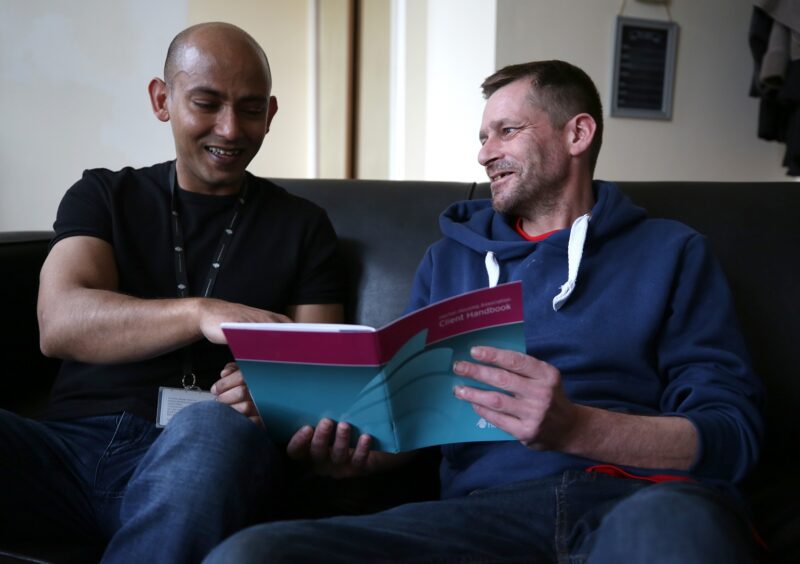11.09.2024 | Blog
How to reduce reoffending: community-delivered, strength-based support

People are driven to reoffend for a number of interconnected factors – from unemployment and homelessness, to addiction and unstable relationships. The only way to effectively reduce reoffending is to address the complex multiplicity of these socio-economic issues in a holistic way.
Strengths-based, personalised services delivered by expert and community organisations work best because they focus on meaningful outcomes, rather than processes or short-term measures. It’s time to implement this local, outcomes-based approach across the country to break this cycle of reoffending, prison overcrowding and societal harm.
The system is broken
Support services for ex-offenders intended to prevent reoffending have been set up to fail – caseloads are unmanageable, service contracts are inflexible and overly-prescriptive, siloed commissioning services can result in missed opportunities for meaningful resettlement, and a shocking number of prisoners are being released into homelessness. The result is high volumes of recalls to prison: according to GOV.UK’s proven reoffending statistics, 26.5% of the adult population reoffends, rising to 56.9% for those with custodial sentences of under 12 months. Among young offenders the rate is 31.2%, and the disconnect between youth and adult services and policy-making often means the value in tackling youth reoffending as a preventative measure is under-appreciated.
It doesn’t have to work this way
Achieving better outcomes for individuals and better value for the public purse is possible, but it requires reorienting our prisons and community support services. Preventing reoffending for good means addressing the specific interconnected challenges each individual is facing, and achieves lasting change by supporting people to take charge of their own lives. This is best achieved through a strengths-based approach to support and inclusion – focussing on what people can do with their skills and resources, rather than focusing on ‘solving’ real or perceived weaknesses.
However, traditional ‘pay-for-input’ contracts with tightly defined specifications of inputs and activities can effectively inhibit or restrict the personalisation and delivery innovation essential for strengths-based working. The ‘payment-by-results’ approach taken by the Transforming Rehabilitation programme, according to the National Audit Office, ‘set itself up to fail’. This is largely because it focussed on cutting the cost of inputs, instead of achieving long-term outcomes.
Rather than the privatisation of probation services rightly abandoned by the government, it is local community organisations which can deliver truly effective rehabilitation services. With their in-depth knowledge of their local communities and their ability to build trusted relationships, community organisations are often best placed to provide the tailored support which is most effective. But for them to do so, a different approach to the funding, design, contracting and delivery of services is needed.
The alternative exists: strengths-based community support
A Strengths-Based Rehabilitation & Resettlement Model leverages individual strengths as the primary motivator for change, emphasising empowerment and self-efficacy. Academics such as Prof. Chris Fox have demonstrated how and why focussing on strengths results in sustained changes in peoples’ lives, as opposed to the shallow or short-term impact of the traditional ‘deficit model’.
Jake’s story highlights the power of choice and the impact of alternative support approaches for individuals leaving custody. This innovative model has been successful as part of the Accommodation For ex-Offenders pilot in Kirklees and in community resettlement provisions nationally.
The key elements for success are:
An integrated streamlined service: Coordinated community interventions which embed mental health, housing, employment and addiction specialists to provide holistic support. Avoiding handoffs between different services mitigates points of failure, improves relationships and minimises administrative burden.
Relational support from dedicated Resettlement Coordinators: Individuals are paired with a consistent Coordinator who builds a personal relationship, pre- and post-release, to provide tailored support for both immediate and underlying challenges.
Strengths-based engagement: Coordinators focus on strengths, helping individuals set realistic goals and actionable plans. They foster sustained engagement and motivation which builds resilience and supports personalised desistance journeys.
Collaboration with Probation: Probation workers manage risk aspects and deeply collaborate with Resettlement Coordinators who focus on personal development. Separating these roles builds trust, resulting in higher levels of engagement and compliance.
The Delivery Mechanism: Social Outcomes Partnerships
Over the last decade a powerful and practical alternative to traditional, ‘pay-for-inputs’ contracting has emerged which better enables person-led, flexible, strengths-based services. Social Outcomes Partnerships prioritise long-term impacts and sustainable changes in the lives of the individuals and communities we serve.
Social Outcomes Partnerships are demonstrably better than traditional approaches at creating sustained improvements in peoples’ lives and creating more effective and joined-up services. They provide a viable alternative to the Transforming Rehabilitation programme which created all the wrong incentives, delivering worse outcomes and wasting vast sums of money.
We know this works
The Greater Manchester Homes Partnership’s ‘diversion from custody’ pathway avoided repeat custodial sentences in 86% of cases.
The Kirklees Better Outcomes Partnership’s ‘Prison Leavers Pathway’ in partnership with prison and probation services and local authorities, helped 70% of ex-offenders maintain stable accommodation and saved MOJ £3.3m for this small but highly complex cohort.
The Skill Mill Social Enterprise where the reconviction rate of the young people they support is just 8% compared to a counterfactual of 63% for young offenders with 11+ convictions over the past 10 years.
The Refugee Better Outcomes Partnership (RBOP) has demonstrated how flexibility and collaboration between government and community organisations can radically reduce the risk of homelessness and support integration.
Now make it happen
The government should divert the existing spend on rehabilitation and resettlement services for low and medium risk prisoners into a Reducing Reoffending Outcomes Fund which supports strengths-based community support through Social Outcomes Partnerships.
No additional money is required. Just a different approach.
If the successes above are replicated, the savings to the taxpayer by reducing the rate of reoffending will be huge. And more importantly, the lives of these people – and by extension their families and communities – will be improved for good. Can we afford not to?
Written by: Sarah Cooke, Grace Duffy, Laura Harding, and Rachel O’Connor
For more information please contact: grace.duffy@bridgesoutcomes.org


